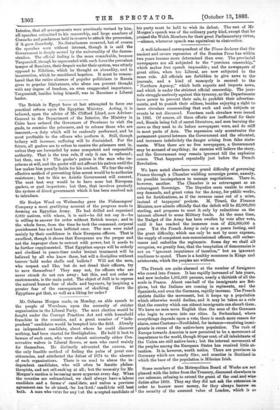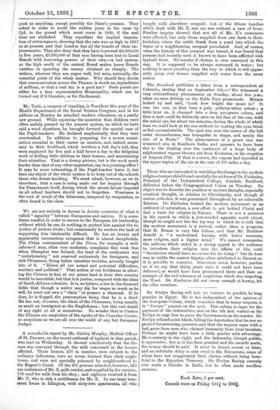Some members of the Metropolitan Board. of Works are not
pleased with the letter from the Treasury, discussed elsewhere in our columns, refusing to extend the grant of the coal anti wine duties after 1889. They say they did not ask the extension in order to borrow more money, for they always borrow on the security of the assessed value of London, which is as good as anything, except possibly the State's promise. They asked in order to avoid the sudden jump in the rates by 21d. in the pound which must occur in 1889, if the coal dnes are abolished. They repudiate the implied imputa- tion of extravagance, showing that the rate was as high in 1867 as at present, and that London has all the benefit of their im- provements. They also deny that they have borrowed E8,000,000 in five years, £3,000,000 of that Sam having been lent to Local Boards with borrowing powers of their own,—a bad system, .as the high credit of the central Board makes lesser Boards careless in spending the money obtained so cheaply. The writers, whoever they are, argue well, but miss, naturally, the 'essential point of the whole matter. Why should they decide that communication across the Thames is worth an expenditure of millions, or that a coal tax is a good tax P Such points are -either for a true representative Municipality, which can be turned out if it blunders, or for Parliament.



































 Previous page
Previous page